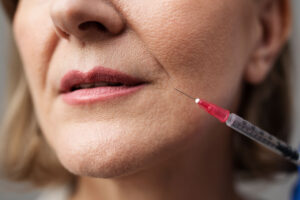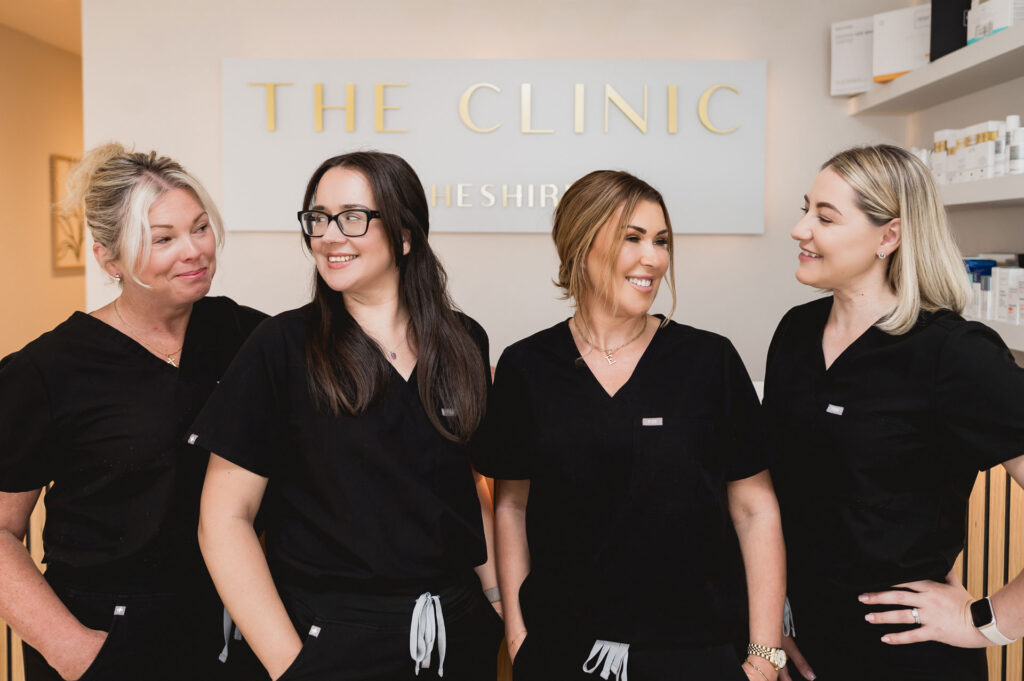
Aesthetic Treatments to Consider Before Your Wedding!
Your wedding day is one of the most memorable moments in your life, and looking your best is essential. If you’re considering aesthetic treatments to
Free click and collect from the Hazel Grove clinic on all skincare purchases.

Your wedding day is one of the most memorable moments in your life, and looking your best is essential. If you’re considering aesthetic treatments to

As we all start to think of long sunny days lounging on beaches in Greece, Spain, Italy or maybe Turkey, it’s time to think about

Hair loss can affect men and women at any age. In this blog we’ll explore a hair loss treatment that actually works, for both men and women.

In this blog we’ll explore what to look for when choosing the right aesthetics practitioner for you. We’ll talk about qualifications, experience, testimonials, communication and more.

Having skin booster treatments can really support your skin to look and feel it’s best. Let’s explore the Top 5 Benefits of Regular Skin Booster Treatments.
As the demand for advanced skin treatments grows, we’re also seeing a rise in clients looking for polynucleotide treatments. We started offering Polynucleotides at The Clinic Cheshire because we love to offer effective, innovative treatments to our clients to help them get the results they want.
In this blog, we’ll be exploring where polynucleotides come from, the science behind how they work and the benefits of a polynucleotide treatment.
Polynucleotides are naturally occurring biopolymers which are found in your body and made up of long chains of nucleotides. These are the building blocks of your DNA and RNA (a type of nucleic acid), which are essential for storing your genetic information and controlling your cellular functions.
In the aesthetics industry, polynucleotides are typically extracted from fish – most commonly salmon. The DNA from salmon is considered by scientists to be biocompatible with human tissue, meaning that our bodies can tolerate and use these polynucleotides as if they were our own.
Before they are used in treatments, the extracted polynucleotides are highly purified, removing any proteins or other molecules that could cause a reaction in humans. This makes them safe for cosmetic use.
Polynucleotides play a critical role in supporting your body’s natural repair processes. They work at a cellular level, replicating and repairing your cells. These functions are vital for wound healing and supporting healthy tissue throughout your body.
Fibroblasts are cells found in your skin’s connective tissue. They produce collagen and elastin, two proteins responsible for maintaining your skin’s structure, elasticity, and firmness.
Polynucleotides help to stimulate fibroblasts, encouraging the production of collagen. The additional collagen and elastin produced can improve your skin texture, reduce wrinkles, and enhance the elasticity of your skin. Which is why polynucleotides can be an effective anti-aging treatment.
Adding polynucleotides into your skin can help stimulate your body’s repair systems. This can accelerate the process of wound healing and skin regeneration, encouraging healthy skin cells to replace older or damaged ones more efficiently.
This is particularly beneficial for anyone who struggles with skin conditions such as acne scars, fine lines and wrinkles or other signs of aging.
Polynucleotides can have anti-inflammatory effects on the skin. This can help to calm irritated skin and promote healing where it’s needed.
Because of their anti-inflammatory response, this makes a polynucleotide treatment suitable for those with sensitive skin and skin which has been damaged by environmental stressors.
One of the added benefits of polynucleotides is that they’re able to attract and bind water molecules. This helps to increase your skin’s moisture levels, resulting in smoother, plumper skin which looks more youthful.
The ability of polynucleotides to stimulate collagen production, accelerate your cell’s repair process and provide long term improvements to your skin’s elasticity and hydration makes it an effective treatment for those wanting to turn the tide on aging skin.
The way that polynucleotides work means that you are treating your skin from within, which is likely to give longer lasting, natural results to improve your skin.
They can be used to treat a range of skin concerns and conditions and are suitable for those with sensitive skin, making them an excellent choice for many of our clients.
You can find out more about our polynucleotide treatment here. If you’d like to discuss a polynucleotide treatment, please book a consultation and we’ll be happy to discuss whether this is the right treatment for you.

If you have any questions about anything you’ve read in this blog post or any of the treatments we offer here at The Clinic Cheshire, please don’t hesitate to get in touch, we’ll be happy to help.
Sign up for our newsletter to receive skincare advice and be the first to know about new treatments.